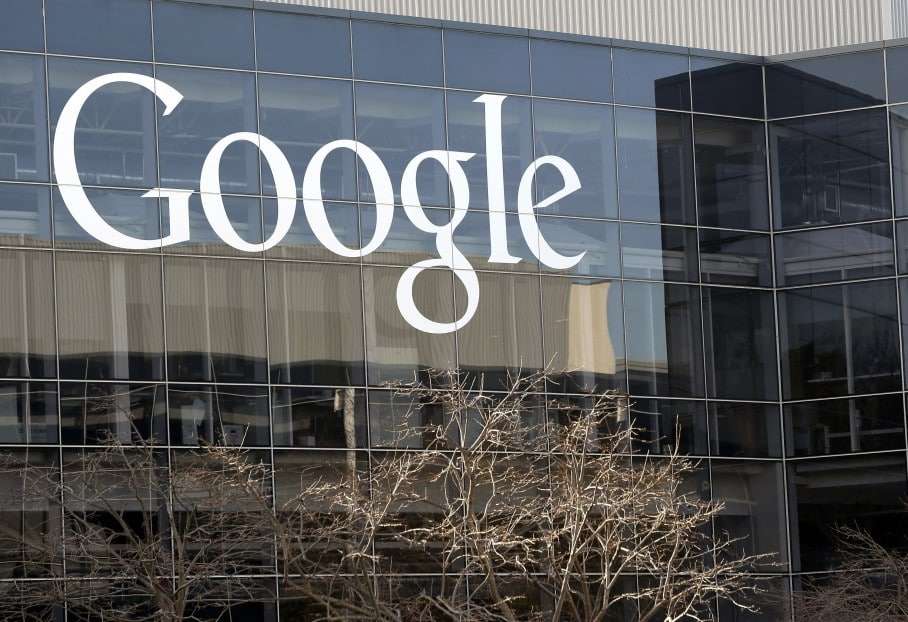The Volokh Conspiracy
Mostly law professors | Sometimes contrarian | Often libertarian | Always independent
The FTC's decision not to sue Google isn't news

The Wall Street Journal has a breathless front-page story on the Federal Trade Commission's decision in 2012 not to sue Google for alleged antitrust violations. The report is based on documents that were inadvertently disclosed by the FTC as part of an open-records request, particularly a staff memo and supporting documents from the FTC's Bureau of Competition that recommended suing Google. In the end, the agency unanimously chose not to bring the claims. Moreover, the story suggests - although does not specifically allege - that the reason that the FTC chose not to sue was improper political influence in some manner. By whom, is not clear, perhaps the Obama Administration or perhaps Google itself.
The article lays out the key points at the outset:
The staff report from the agency's bureau of competition recommended the commission bring a lawsuit challenging three Google practices. The move would have triggered one of the highest-profile antitrust cases since the Justice Department sued Microsoft Corp. in the 1990s.
The 160-page critique, which was supposed to remain private but was inadvertently disclosed in an open-records request, concluded that Google's "conduct has resulted-and will result-in real harm to consumers and to innovation in the online search and advertising markets."
The findings stand in contrast to the conclusion of the FTC's commissioners, who voted unanimously in early 2013 to end the investigation after Google agreed to some voluntary changes to its practices.
It is unusual for the commissioners to not take staff recommendations. But in this case, they were wrestling with competing recommendations, including a separate report from the agency's economic bureau that didn't favor legal action.
It is not an implausible hypothesis that lobbying influenced the antitrust prosecution. For example, it is true that around the time of the investigation, Google poured huge amounts of lobbying money into trying to influence the FTC and its congressional overseers. Indeed, when then-Chairman Jon Leibowitz announced the FTC's decision not to bring suit, he specifically addressed those lobbying efforts and denied that they had an influence. It is generally thought that the pivotal moment in the decision of businesses to lobby antitrust enforcers dates back to the decision by the Clinton administration to bring its antitrust action against Microsoft, which was egged on by Microsoft's rivals at that time. It is not clear whether in fact that suit was the result of lobbying pressure or not, but the perception has been that it mattered. Whatever the facts in that case, since that time efforts to lobby antitrust authorities have increased dramatically.
Nor is it enough to note that the Federal Trade Commission is an independent agency insulated from political pressure. As evidenced by the FCC's politically-motivated flip-flop on "net neutrality" regulation, it seems quite clear that independent agencies can be influenced by political pressure from the White House. With respect to the Google antitrust case, however, the decision was unanimous, so it is unlikely that was important.
There is, however, a more important reason why the WSJ article is not news. The key claim in the article is this: "It is unusual for the commissioners to not take staff recommendations."
That statement-that it is "unusual for the commissioners to not take staff recommendations"-is not accurate, and to the extent it is, it is much more complicated than the WSJ suggests. What is more important is the next sentence, "But in this case, they were wrestling with competing recommendations, including a separate report from the agency's economic bureau that didn't favor legal action."
The way the FTC is structured, in any given case two recommendations go to the Commission-the first from one of the lawyer-driven enforcement bureaus (Bureau of Competition or Bureau of Consumer Protection) and the second from the Bureau of Economics. In cases where they disagree, it is not quite accurate to say that it is "unusual" for the Commission to take the recommendation of the Bureau of Economics over the Bureau of Competition.
In fact, this has been known for year. In 1990, Malcolm B. Coate, Richard S. Higgins, and Fred S. McChesney published an important article in the Journal of Law and Economics, "Bureaucracy and Politics in FTC Mergers." Their central point is that, as a general rule, lawyers are more prone than economist to want to challenge mergers or (presumably) to bring antitrust actions. They are also more prone to focus on the odds and ends of factual statements focused on in the WSJ article. The economists, by contrast, are more likely to focus on data and larger market effects rather than "smoking-gun" type documents that make up the BC memo. Where the lawyers and economists agree the FTC usually does bring an action. Where they disagree, however, it is less likely. And while the lawyers prevail more frequently against the economists than vice-versa, it is by no means inevitable and by no means suggests that the lawyers are more likely to be correct on the merits than the economists. And certainly there is no reason to believe that economists are more prone to political pressures or self-interest than the lawyers at the FTC.
In short, one may agree or disagree with the decision not to bring an antitrust action against Google. But given that the decision was unanimous (suggesting there was no political pressure from the White House) and given that the lawyers and economists were divided on the usefulness of the case, there is no reason to believe that politics played an important role in the FTC's decision not to prosecute Google. By failing to emphasize the key fact-that the Bureau of Competition and Bureau of Economics disagreed on the merits of the case-the story misunderstands the dynamics of how these cases are processed at the FTC.


Show Comments (0)